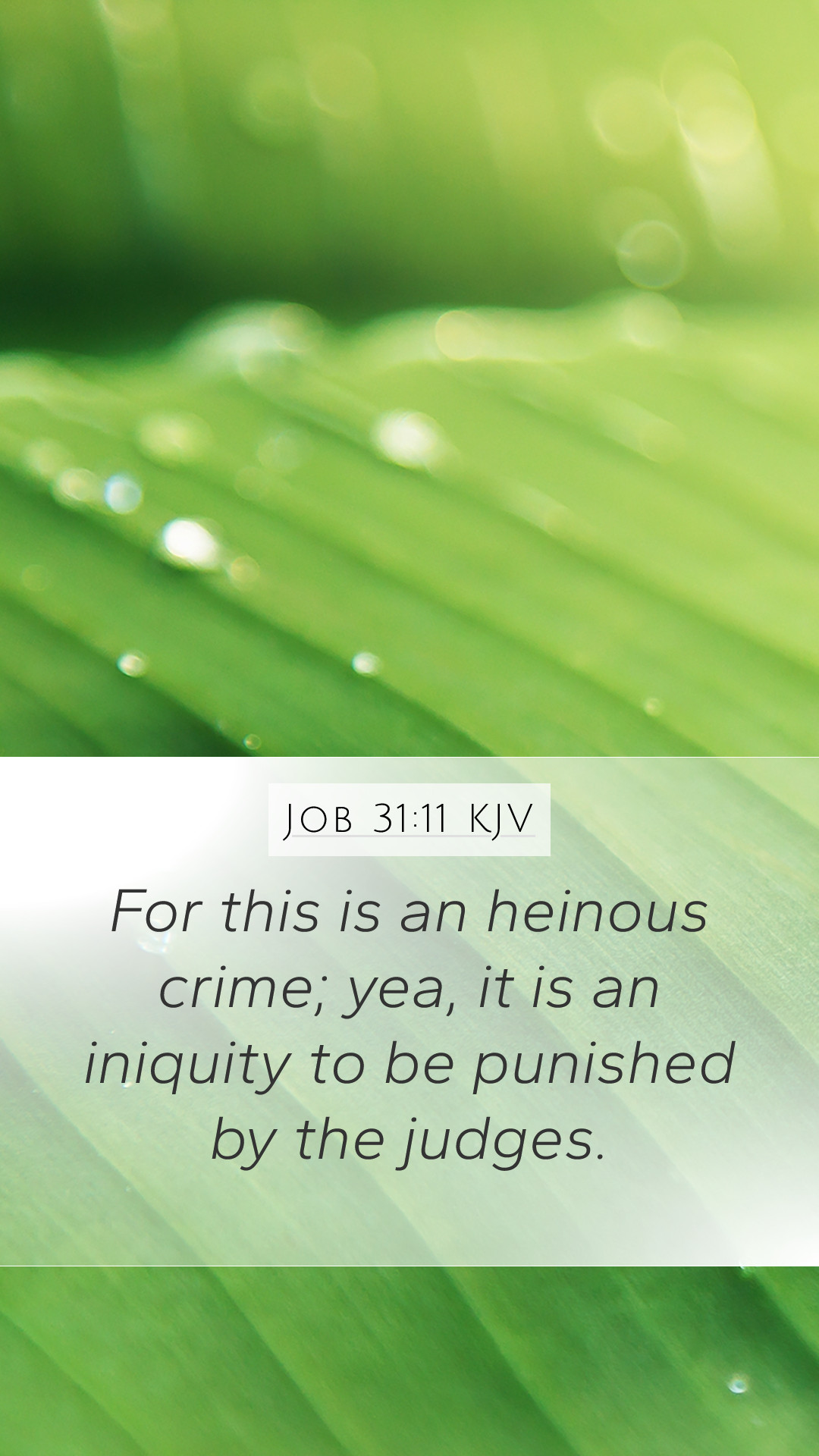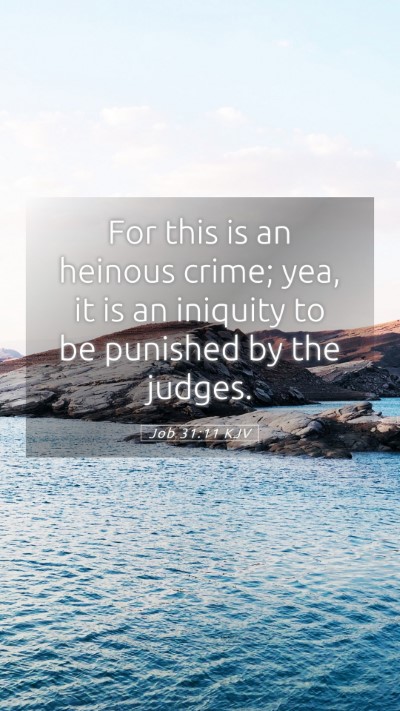Understanding Job 31:11 - A Comprehensive Bible Verse Commentary
Job 31:11 states: "For what is our lot from God above, our heritage from the Almighty on high?" This verse reflects Job's plea for understanding the plight and righteousness he has upheld, amidst his suffering.
This analysis draws from notable public domain commentaries to provide a cohesive interpretation of this scripture.
Summary of the Verse
In Job 31:11, Job argues about the nature of God's justice while reflecting on his own innocent sufferings. He raises a rhetorical question about the divine heritage that one receives from God, implying that one’s moral standing often reflects their earthly experiences. Job is emphasizing that the righteous are protected, while the unjust reap their consequences.
Commentary Insights
Insights from Matthew Henry's Commentary
Matthew Henry elaborates that Job's rhetorical inquiries reveal the gravity of moral failing. He interprets Job's words as suggesting that immoral behavior, particularly adultery and dishonesty, results in dire consequences — hence emphasizing the sanctity of marital fidelity. It signifies to Job that the absence of guilt provides a clear conscience before God.
Albert Barnes' Interpretation
Albert Barnes points out that Job is considering the intrinsic values bestowed by God upon mankind. He sees Job’s words as a reflection on the blessings one receives as a heritage from God. Barnes elucidates that for Job, unblemished character ought to be rewarded, and therefore, Job’s afflictions are perplexing in light of his righteous life.
Adam Clarke's Perspective
Adam Clarke offers a view that the “heritage from the Almighty” alludes to divine protection and the blessings that the Lord bestows upon the innocent. Clarke argues that Job is asserting his innocence and questioning the fairness of his suffering, as such trials are not the conventional result of divine heritage.
Implications of Job 31:11
Job 31:11 not only echoes the sentiment of individual sorrow but also invites readers to reflect on broader theological themes of justice, heritage, and integrity.
Biblical Exegesis and Application
This verse fits within the themes of suffering and righteousness, akin to the broader narrative of the Book of Job. It calls for deeper exploration of how believers interpret struggles in the context of their faith and moral standing.
Related Bible Verses
- Proverbs 6:32 - Discusses the consequences of adultery.
- Job 4:7 - Asks who can be innocent before God.
- Psalms 37:28 - Affirms that the Lord does not forsake the righteous.
- Proverbs 11:21 - States that the wicked will not go unpunished.
- Ecclesiastes 8:14 - Discusses how the righteous may suffer while the wicked prosper.
Conclusion
The verse Job 31:11 opens avenues for Bible study groups to engage in deep discussions about the implications of morality, divine justice, and human suffering. It serves as a valuable resource for those embarking on online Bible study or using Bible study tools to glean insights into hardship's relationship with faithfulness.
Further Study Suggestions
For those interested in in-depth Bible verse analysis, consider diving into historical contexts and the cultural backgrounds of conversations within the Book of Job. This can enhance understanding of similar themes found in other scriptures such as Psalms and Proverbs.
SEO Keywords for Further Research
- Bible verse meanings
- Bible verse interpretations
- Bible study lessons
- Understanding Scripture
- How to interpret Bible verses


